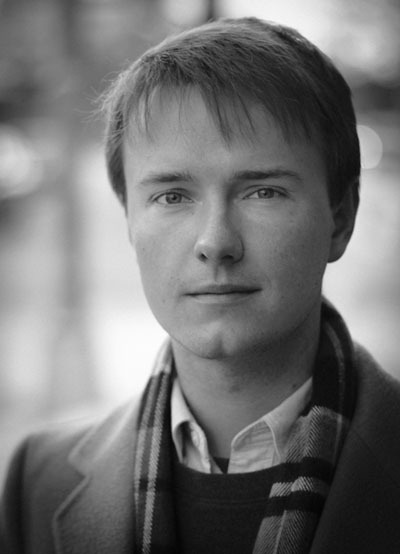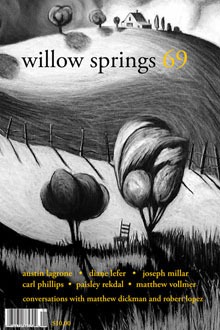
About Michael Martin Shea
Michael Martin Shea is an MFA candidate at the University of Mississippi, where he is a John and Renée Grisham Fellow. His poems have appeared or are forthcoming in Ninth Letter, Salt Hill, Hayden’s Ferry Review, Meridian, Sycamore Review, and elsewhere.
A Profile of the Author
Notes on “How to Say, ‘I Was Scared of Fire As A Kid'”
“How to Say, ‘I Was Scared of Fire As A Kid,'” began, actually, as a Facebook update-I don’t ever delete people from Facebook because that would involve, well, putting effort into my Facebook account, so sometimes I log in and am greeted with these updates from people I only sort of remember, all talking about really strange things. That’s what happened here: a distant acquaintance posted about a dream she had in which she was given six hours to live but had nothing she wanted to do. I thought that was wonderful, so of course, I stole it, and it became the first line of the poem. The rest came pretty naturally-I felt that if I started the poem with a dream, I had to continue to talk about dreams, so I did. Most of those dreams actually happened, too-the dog bite is entirely true, and the kitten dream is essentially true, with some distracting details removed. The hardest part was coming up with a title once it was finished. I made all sorts of terrible attempts. Eventually I was talking to a friend about the poem and he asked me what I was scared of, and I responded, “Well, I used to be scared of fire as a kid,” which was a total misdirection answer, but that sort of stuck.
Though the specific action of the poem is embellished, the piece is, to me, pretty autobiographical, at least as far as the two characters are concerned. I can pretty clearly identify some issues that were going on in my personal life at the time, but most prominent is this idea of what happens when a narrative moves from dream to reality (or anti-reality), and the loss that that might entail. This poem came at the height of a very autobiographical narrative period, which not accidentally coincided with my impending move for graduate school, and my girlfriend and I were dealing with how that would play out for us. In a way, this poem was my attempt to force these things to at least pause for a second. I’ve since backed off that narrative bent really heavily-maybe I ran out of stories to tell-but this poem is still one of my favorites from that time. It feels very honest-I can still see the person I was at that point in my life.
Notes on Reading
Reading is a really challenging experience for me. On one hand, reading is obviously great, just on a level of pure enjoyment. And I wouldn’t have started writing if I hadn’t at some point read the things that made me want to be a writer. I’m continually inspired by other poets—especially Josh Bell, Sabrina Orah Mark, and Frederick Seidel, all of whom are criminally underrated. On the other hand, it’s not infrequently that I find myself reading something and going, “Good Lord, that’s so incredible—and now I can’t write that.” With everything we read, we abandon one more possible way of expressing ourselves in a manner that’s authentic. Which is good, but it forces me to work harder and I don’t always like that. Additionally, there’s a big responsibility involved in being a reader that I don’t think the writer has. The writer—especially the poet—can essentially say and do whatever he or she pleases. There’s really not a lot on the line here in terms of social capital or actual financial capital, and the difference between being a celebrated poet and a nobody amounts, in a lot of cases, to things that are entirely outside the poet’s control. Which is really freeing as a writer—if there’s nothing at stake, why not write the most honest, authentic thing you can? It’s the reader’s job to make value judgments and decide, “Okay, this is good for such and such reason.” The problem is that it’s hard to take on that responsibility as the reader one moment, and then completely cast it away the next when it’s time to sit down and write, and it can lead to a lot of anxiety and self-censorship. Granted, some anxiety is necessary as a writer, and of course it’s only through reading everything else that we can really develop our own notions of poetics and determine if our poems are working in the ways in which we want them to work. But I find I have to really separate myself from what I’ve read in order to write—I need to read it, but then I need to forget it as well. Thankfully, I have a really bad memory.


